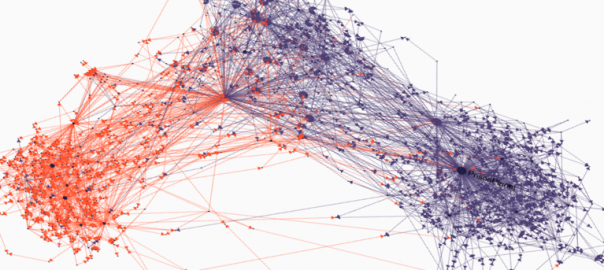Update: workshop report available (AI Magazine Spring 2018 | DOI:10.1609/aimag.v39i1.2783 | Preprint)
The deluge of online and offline misinformation is overloading the exchange of ideas upon which democracies depend. Many have argued that echo chambers are increasingly constricting the ability of alternative perspectives to provide a check on one’ s viewpoints. Suffering fragmentation and declining public trust, the Fourth Estate struggles to carry out its traditional editorial role distinguishing facts from fiction. Without those safeguards, fake news, conspiracy theories, and deceptive social bots proliferate, facilitating the manipulation of public opinion. Countering misinformation while protecting freedom of speech will require collaboration between stakeholders across industry, journalism, and academia. To foster such collaboration, the Workshop on Digital Misinformation will be held in conjunction with the 2017 International Conference on Web and Social Media (ICWSM) in Montreal, on May 15, 2017. The meeting is intended to bring together key stakeholders to discuss practical countermeasures, including:
s viewpoints. Suffering fragmentation and declining public trust, the Fourth Estate struggles to carry out its traditional editorial role distinguishing facts from fiction. Without those safeguards, fake news, conspiracy theories, and deceptive social bots proliferate, facilitating the manipulation of public opinion. Countering misinformation while protecting freedom of speech will require collaboration between stakeholders across industry, journalism, and academia. To foster such collaboration, the Workshop on Digital Misinformation will be held in conjunction with the 2017 International Conference on Web and Social Media (ICWSM) in Montreal, on May 15, 2017. The meeting is intended to bring together key stakeholders to discuss practical countermeasures, including:
- Identify the cognitive, social, political, financial, and technological factors contributing to the generation and propagation of misinformation
- Explore institutional standards such as a classification of different types of misinformation
- Devise technical tools to facilitate fact checking
- Delineate the distinction between countering misinformation and infringing upon the freedoms of speech, thought, and association
- Develop a shared statement of principles
Our ultimate goal is to bootstrap a long-lasting initiative between various sectors (i.e., industry, academia, journalism, civil society) for countering digital misinformation. We will discuss the possibility to create community spaces for follow-up discussion and further collaborative activity; a special focus will be placed on the identification of viable funding instruments for future collaborative activities, the scope of which will likely include research, education, and policymaking.
Program
Reconnaissance Readings
Survey on Research Challenges
We used the All Our Ideas platform to identify key research challenges and priorities in three areas:
- How to define and detect misinformation?
- How to best study the cognitive, social, and technological biases that make us vulnerable to misinformation?
- What countermeasures are most feasible and effective and who can best deliver them?
The results can be found in the workshop report.
Organizers
- Filippo Menczer, Indiana University
- Alessandro Flammini, Indiana University
- Giovanni Luca Ciampaglia, Indiana University
- Gregory Maus, Indiana University
- Alexios Mantzarlis, Poynter International Fact-Checking Network
Participants


We acknowledge generous support from the Department of Informatics, Indiana University School of Informatics and Computing, and from the IU Network Science Institute.
